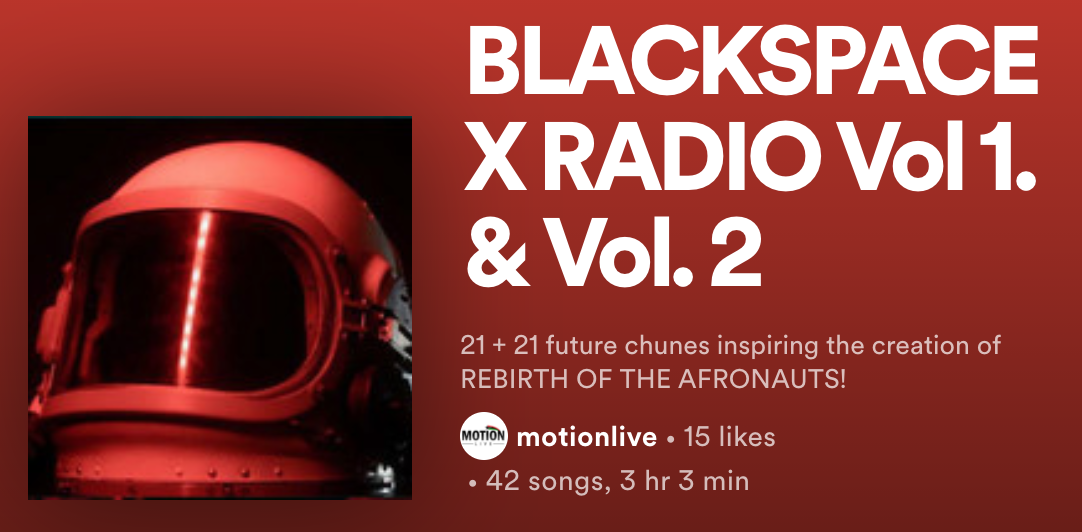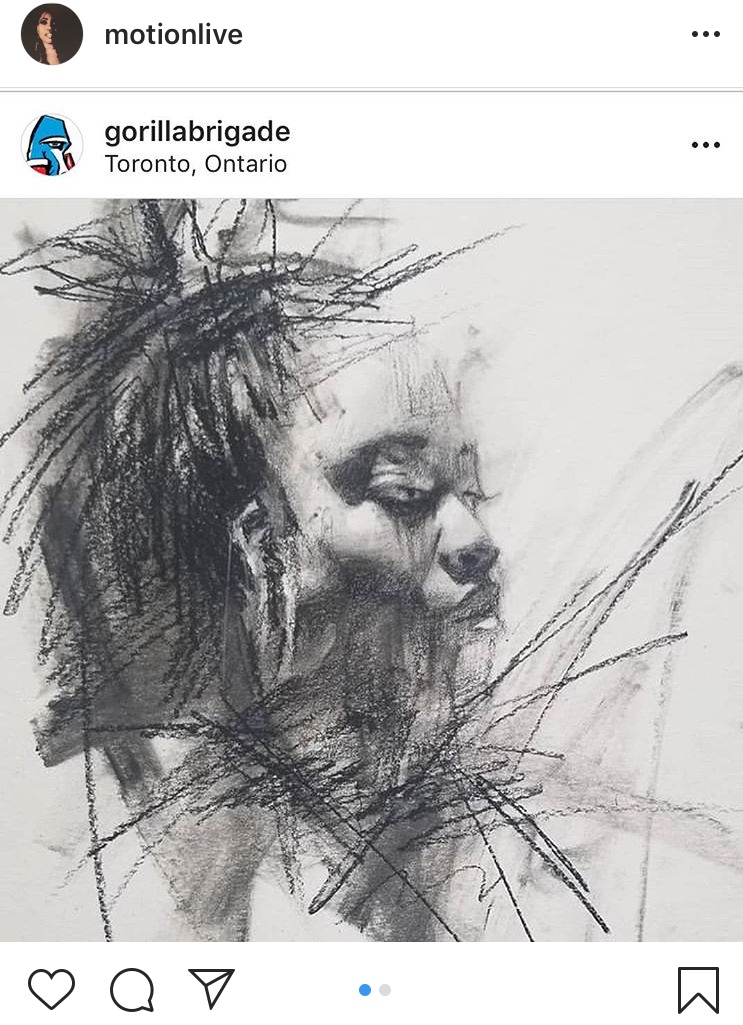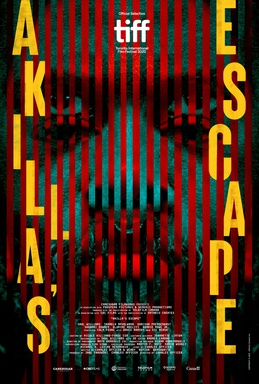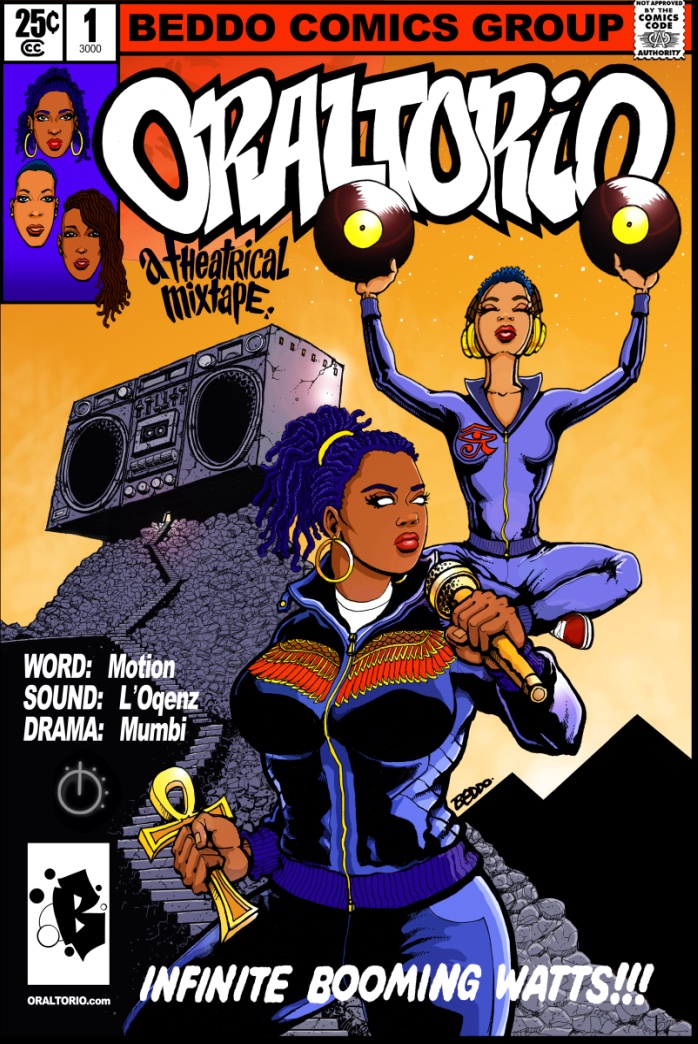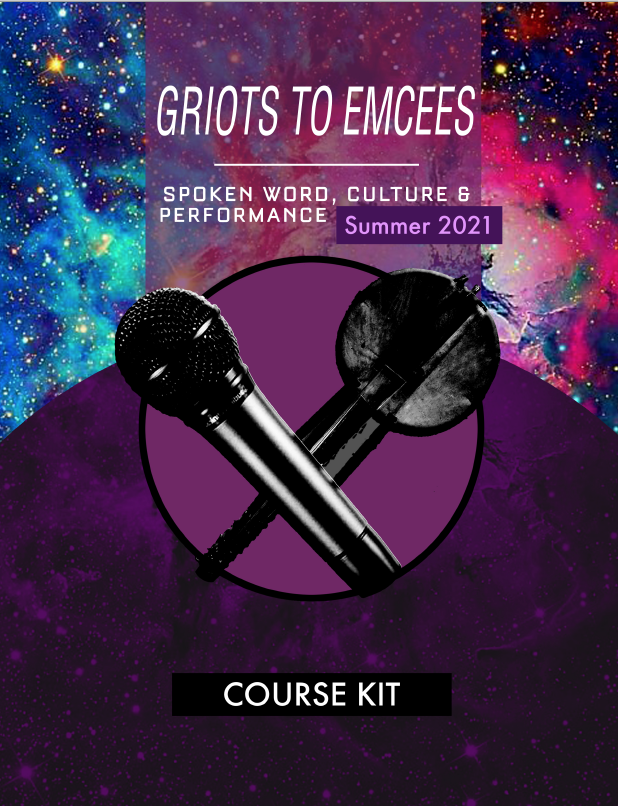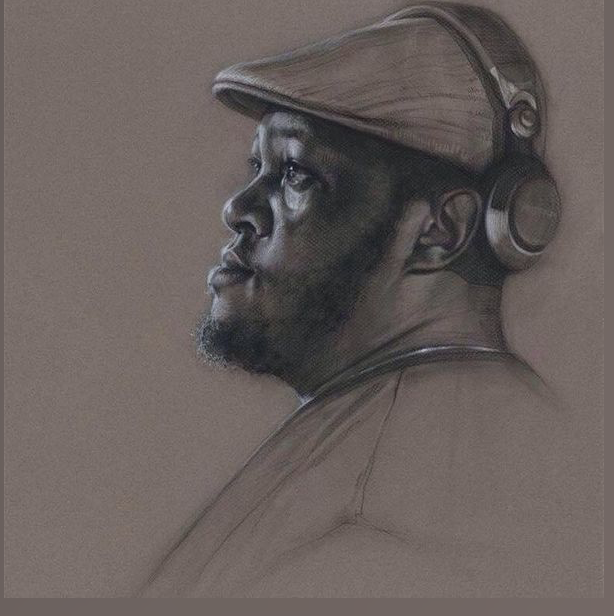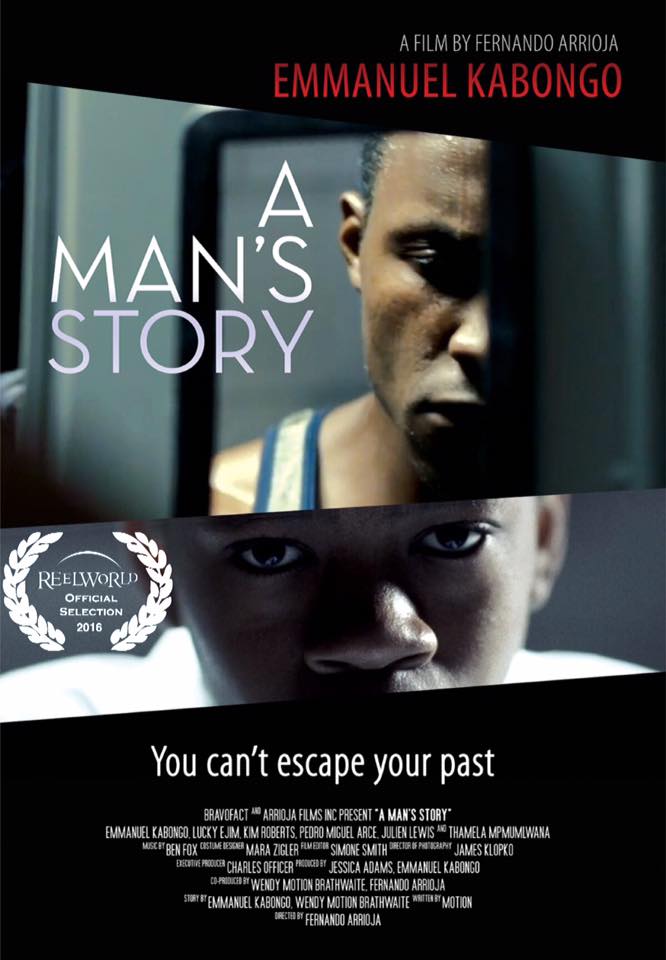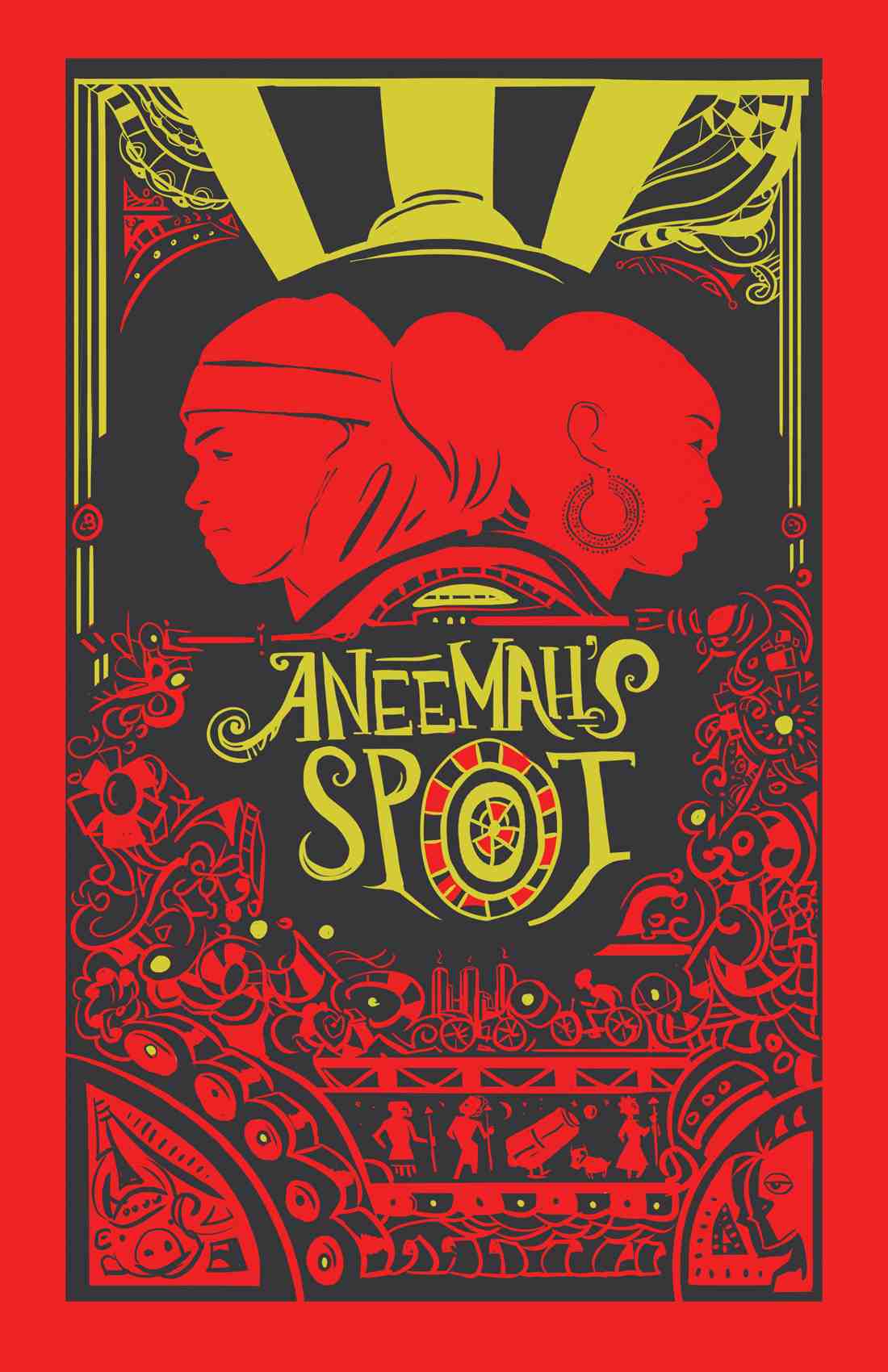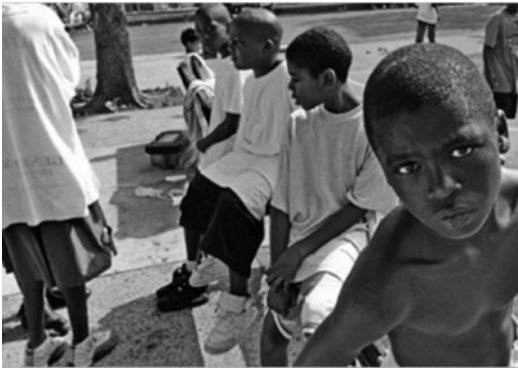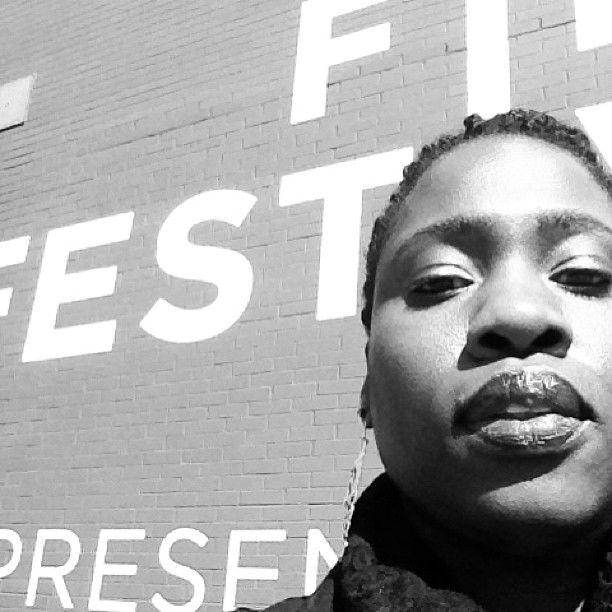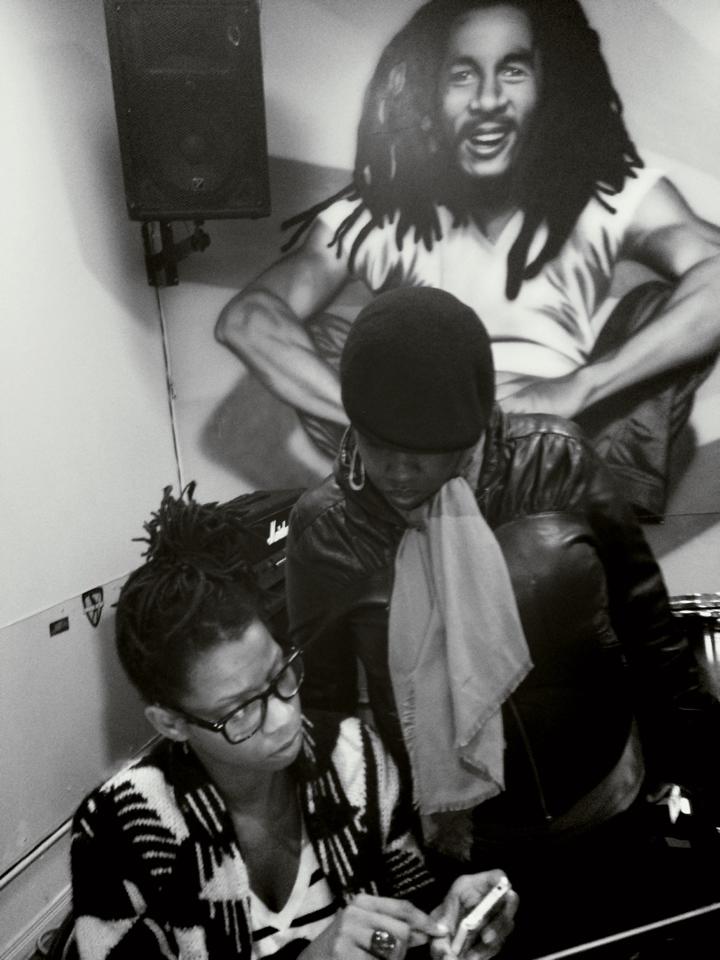
Poetry In Motion
Rising Torontonian poet Motion’s unique performance combines elements of hip-hop, soul, and spoken word
Toronto-based writer, hip-hop artist, and spoken-word poet Motion graced the stage at Trane Studio last week to launch her new book of poetry 40dayz.
Motion describes her unique style of spoken-word as an interactive mode of expression that combines preaching, storytelling, public speaking, and the vocalization of poetry. She fused her poetry with elements of hip-hop, jazz, soul, and Caribbean music, creating a unique and captivating performance.
Motion’s undeniable stage presence and ability to connect with a crowd was evident as she rapped, sang, and recited a selection of her poems from 40dayz. A perfect complement was her full backing band, comprised of bass, drums, trumpet, and DJ L’oqenz, a staple throughout the set.
“I want to keep incorporating new instruments,” said Motion, in a recent interview with The Varsity. “I love wind instruments and string instruments. Also, I want to keep building production—and I can’t forget DJ L’oqenz, because DJs are musicians too. So I’m open to a whole bunch of different ways to do music, from live to digital, to manipulating sounds, to sampling.”
In addition to her band, Motion was backed by three female vocalists, each of whom was selected to contribute to the tone of her work. Motion has performed with her musicians and singers for years, and she went to high school with most of them. “Almost everyone who performed with me that night I’ve known in some artistic capacity for a while. [Bluesy singer] Michelle Francis and I had a band in high school, so it was great to bring those people together. It was like a family affair, and I was very happy for the support and the opportunity to collaborate and bring this vision to reality.”
A graduate of U of T in English and African Studies, Motion was exposed to an array of music from an early age. “My mother was always saying I could dance before I could walk. I’ve always loved music, I’ve always loved dancing. I loved expressing myself to an audience—singing, making up songs, writing.”
With parents from Antigua and Barbados, her exposure to Caribbean music, soul, reggae and jazz was unlimited—it included such artists as Bob Marley, Roberta Flack, Sparrow, Isaac Hayes, and Parliament Funkadelic. These eclectic influences and her resulting musical vision are apparent in her arrangements. “Sometimes I [write the arrangements myself], but I also have input: I work with people to build instrumentation, but I’m definitely expanding myself into the production side. I surround myself with DJs and producers who give me input into production aspects…because I love music and I have a good sense of what I want to hear underneath my lyrics.”
Whereas her first book, Motion in Poetry, was comprised of poems written throughout her life, the material in 40dayz came together over the course of a year.
“It was almost 10 years of writing that I had to choose from for Motion in Poetry. It’s very lyrical, it has a lot of attitude, but it also has peaks and valleys where it moves from reflection to straight-up affirmation to exploring the whole concept of relationships and romance. [The first book] was sort of like my introduction as an emerging woman, and I think that with 40dayz it was [my] focus on a particular theme that opened my eyes to new things, to new stages of my own artistry and my own life.”
As she began to craft 40dayz, Motion was influenced by her experience at the University of Guelph’s Fine Arts program, where she had the chance to work with esteemed poets Dionne Brand, Judith Thomson, Tom Kane, and David Young. Motion credits Brand in particular for exposing her to contemporary poets with whom she was unfamiliar.
“I started thinking about how 40 days is often associated with trials and tribulations, going through your challenges and being able to go through that fire and emerge scathed but stronger. I think that’s just reflective of life. It was a way of documenting a season that I’ve been through.”
In addition to this theme of resilience, Motion has focused on different kinds of poetry. Not all of her poems are free verse—there’s some haiku as well. She found herself compelled to place restrictions on her creativity, limiting herself to a certain number of lines or specific structure, to make the words as potent as possible. “I really admire Langston Hughes, the poet from the Harlem Renaissance. I was fascinated by the way he could use four lines and just blow you away, how he could say so much with so little. That was something I had in my mind [while writing this book].”
One poem in particular which stood out at the book launch was “Connecting The T-dots.” This work won the CBC National Poetry Face-Off, where a poet is chosen to represent each of Canada’s major cities, and listeners vote to pick the winner.
“The theme that year was ‘love in your city’ and when I heard that theme I thought, ‘Wow, there’s so many ways I can approach this,’ because when we hear the word ‘love’ we always think of walking hand in hand, flowers, kissing and candy…but I wanted to explore love from the urban cities that I’ve seen, its good and bad aspects.”
“Connecting The T-dots,” alongside Motion’s other works presented at the book launch, was performed with controlled passion. Motion is currently planning a summer tour across Canada and possibly the United States, where she plans to continue drawing in the listener through a musical and poetic journey of emotional peaks and valleys, leaving them on the edge of their seats.
http: //thevarsity.ca/articles/18417
//thevarsity.ca/articles/18417


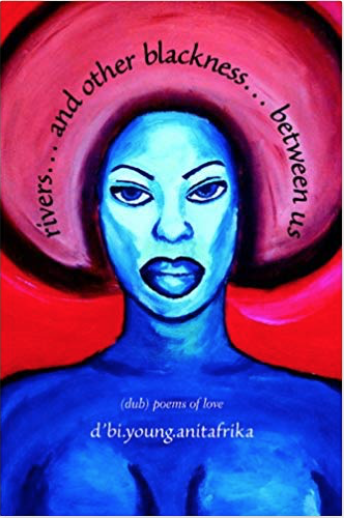 In the preface to her first collection, art on black, d’bi.young.anitafrika defines dub as follows: “dub is word. dub is sound. dub is powah. dub poetry is performance / poetry / politrix / roots / reggae” and identifies four elements of dub poetry-language, musicality, political content, and performance. Since then, anitafrika has elaborated three additional elements-urgency, sacredness, and integrity-which infuse and inform her own practice of dub. These additional elements signal the arrival of the visionary poetics found in rivers… and other blackness… between us, a book that confronts systemic racism in Toronto, the ongoing global effects of colonialism and imperialism, and pursues a vision of a just future. In “young black,” anitafrika repeats the incantation “you are brilliant and beautiful and / strong and rare” in a poem in which puns play alongside explicit commentary on local, national, and global politics:
In the preface to her first collection, art on black, d’bi.young.anitafrika defines dub as follows: “dub is word. dub is sound. dub is powah. dub poetry is performance / poetry / politrix / roots / reggae” and identifies four elements of dub poetry-language, musicality, political content, and performance. Since then, anitafrika has elaborated three additional elements-urgency, sacredness, and integrity-which infuse and inform her own practice of dub. These additional elements signal the arrival of the visionary poetics found in rivers… and other blackness… between us, a book that confronts systemic racism in Toronto, the ongoing global effects of colonialism and imperialism, and pursues a vision of a just future. In “young black,” anitafrika repeats the incantation “you are brilliant and beautiful and / strong and rare” in a poem in which puns play alongside explicit commentary on local, national, and global politics: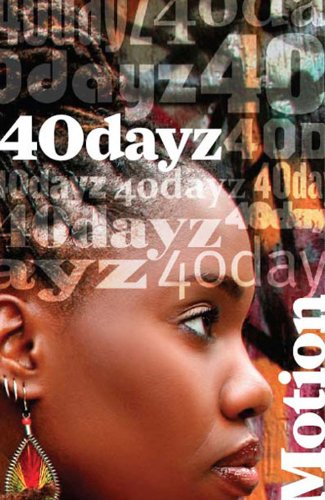 While anitafrika’s poems read as the verbal weapons of a pacifist street-fighter, Motion’s new collection, 40 dayz, is an urban, funk anthem for the T.Dot-Toronto in 2008. These poems focus mainly on a series of vignettes about life in Toronto’s North End and are figured through a series of metaphors that at once embrace and reject, reflect and conceal their own trajectories. Unlike the straightforward, linear narratives of much of the popular spoken word of today, Motion’s poems-which several times reminded me of the work of New York slammer-turned-sound-poet, Tracie Morris-mostly avoid the didactic approach in favour of vivid, image-based, but still political, long lyrics. While there is restraint here, I appreciate the revelations as well, and the irrepressibility and emergence that, for me, bring life to these poems. For example, “woman,” a poem that reveals the torment of watching a friend undergo cancer treatment, lays bare the painful ritual of hospital visits:
While anitafrika’s poems read as the verbal weapons of a pacifist street-fighter, Motion’s new collection, 40 dayz, is an urban, funk anthem for the T.Dot-Toronto in 2008. These poems focus mainly on a series of vignettes about life in Toronto’s North End and are figured through a series of metaphors that at once embrace and reject, reflect and conceal their own trajectories. Unlike the straightforward, linear narratives of much of the popular spoken word of today, Motion’s poems-which several times reminded me of the work of New York slammer-turned-sound-poet, Tracie Morris-mostly avoid the didactic approach in favour of vivid, image-based, but still political, long lyrics. While there is restraint here, I appreciate the revelations as well, and the irrepressibility and emergence that, for me, bring life to these poems. For example, “woman,” a poem that reveals the torment of watching a friend undergo cancer treatment, lays bare the painful ritual of hospital visits: